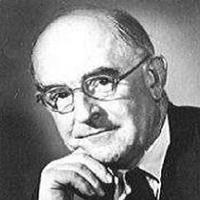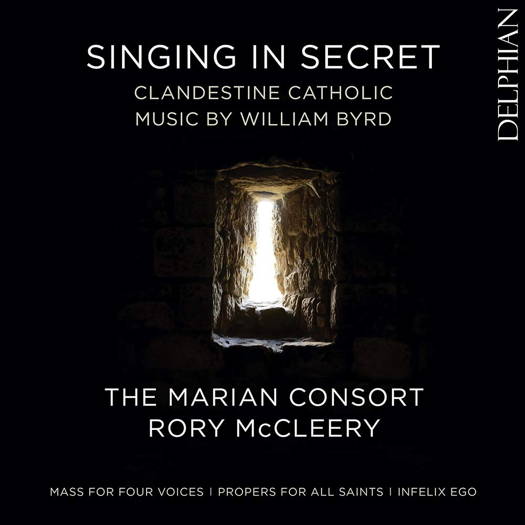 FEEDBACK: She said WHAT? Read what people think about our Classical Music Daily features, and have your say!
FEEDBACK: She said WHAT? Read what people think about our Classical Music Daily features, and have your say!
- Great War
- John Milton Cage Jr
- Karel Husa
- Michael Sanderling
- Robert Lucas de Pearsall
- Chekhov
- Onyx Classics Ltd
- Mozart: Violin Sonata in F K 377
 SPONSORED: Ensemble. Unjustly Neglected - In this specially extended feature, Armstrong Gibbs' re-discovered 'Passion according to St Luke' impresses Roderic Dunnett.
SPONSORED: Ensemble. Unjustly Neglected - In this specially extended feature, Armstrong Gibbs' re-discovered 'Passion according to St Luke' impresses Roderic Dunnett.
All sponsored features >>

Opposite Religious Poles
Secret Catholic music by William Byrd
impresses GERALD FENECH
'Absolute joy from beginning to end.'
The course of sacred music in sixteenth century England was not a straightforward one, as prevailing musical genres and styles were influenced by the new ideas of individual composers, by trends imported from mainland Europe, and most important of all, by the political and religious upheaval which afflicted the life of England at this time. The reformation begun by Henry VIII, which was slightly slowed down by a short Catholic resurgence under Mary Tudor, culminated in the Elizabethan settlement which demanded every citizen to conform to the new religion. English Catholics found themselves hemmed in from all sides, and a severe persecution ensued. Offenders were severely punished, even by a horrendous death.
It was in this dark climate that William Byrd (1539/40-1623), arguably the greatest English Renaissance composer, lived and worked. Byrd was an ardent and devout Catholic, and as such a recusant, but being a Gentleman of the Chapel Royal and a favourite of Queen Elizabeth, he was spared, to some extent, the ire of the Protestant reformers. Byrd's music strongly reflects his recusancy, but more striking is the fact that the composer managed to find a way how to write music for the Catholic rite and still remain unmolested.
Listen — Byrd: Kyrie (Mass in Four Voices)
(track 3, 0:37-1:11) © 2020 Delphian Records Ltd :
The music on this recording is, indeed, a testament not only to Byrd's brilliance as a composer, but also to his great sense of judgement on how to keep a balance between two opposite religious poles. The programme revolves around the Mass for 4 voices punctuated by eight Motets of the utmost beauty.
Listen — Byrd: Miserere mei
(track 1, 0:02-0:50) © 2020 Delphian Records Ltd :
When one considers that these pieces were celebrated clandestinely in the private houses and chapels of sympathetic nobles, one can surmise what courage they instilled in those who felt compelled to witness to the faith. Indeed, this sublime music explains the more coded ways in which Byrd was able to express his beliefs, and his commitments to the cause, setting texts which had become associated with Jesuit martyrs and biblical extracts that evoke divine intervention.
Listen — Byrd: Infelix ego
(track 14, 12:05-12:55) © 2020 Delphian Records Ltd :
In these extraordinary events we are living through today, I presume it would not be amiss that while listening to these pieces we raise our hearts and minds towards the heavens, and invoke that same intervention that Byrd, with his music, tried to convey to his fellow men. McCleery and his Marian Consort deliver intensely charged renditions full of warmth and expressive involvement in text and phrase, coupled with singing that is consistently illuminating and sure-footed.
Absolute joy from beginning to end. Ah! Make sure you don't miss McCleery's annotations.
Copyright © 23 March 2020
Gerald Fenech,
Gzira, Malta

CD INFORMATION: SINGING IN SECRET - CATHOLIC MUSIC BY WILLIAM BYRD
FURTHER INFORMATION: WILLIAM BYRD
FURTHER INFORMATION: DELPHIAN RECORDS LTD
FURTHER ARTICLES ABOUT RENAISSANCE MUSIC
FURTHER ARTICLES ABOUT SCOTLAND


